Sue and Mark Rendell transformed the ‘dirty shop in the corner’ into a thriving village hub complete with cafe. Robin Mannering reports
With its community-spirited populace and absence of supermarkets within a seven-mile radius, the Wiltshire village of Aldbourne was probably a safe bet when it came to buying a local store.
But when Sue and Mark Rendell took over Aldbourne Post Office and Stores nearly five years ago, it was far from the thriving village hub it is now. Instead, the couple inherited a struggling business known locally as ‘the dirty shop on the corner’, which was crying out for a revamp.
Unfortunately, some of its die-hard customers had other ideas, so Sue and Mark had to tread carefully while instigating their quiet revolution.
“Our first customer, who’ll also be our last, comes to the shop five times a day,” Sue says. “On our first day she said ‘this is my larder, and I don’t need to have it changed’. So we were conscious of not making too many changes at the beginning.”
Yet the couple knew that they had to consider the bigger picture if they were to raise the store’s profile among the wider village and complement the nearby Co-op as a destination shop.
“When we took over we just sold light bulbs and things you couldn’t get in the Co-op. It was never really a shop,” Sue adds. “It was a place where you could post your letter, buy a lightbulb and leave.”
They made a few minor changes in the first year, such as buying shelves from the Woolworths outlet when it closed in nearby Marlborough. “The previous shelves were makeshift and different colours and sizes. The store was very narrow and dark before, so the new shelves created more space, too,” she adds.
Sue, who used to be a nurse, had a clear vision of the shop’s future. “We wanted to have a shop which was a community, where people felt comfortable. This job is exactly like being a community care manager except I don’t have to deal with Swindon Borough Council!”
Store profile
Aldbourne Post Office and Stores, Wiltshire
Size: 1,500sq ft, including café
Opening times: 7.30am-7.30pm (lottery days) 7.30-7pm (non-lottery days Monday and Thursday) 8.30am-1.30pm Sunday
Staff: 10 part time
Services: Post Office, lottery, PayPoint, café, catering service
So with their vision bottled up for long enough, the couple began to transform the store and set it apart from the Co-op.
“Wine was our first radical change. Our strategy was to sell decent wine at a good price, and ones you couldn’t get from the Co-op,” states Mark.
They started buying from Manchester wholesaler Boutinot, which has vineyards across South Africa, France and Australia. More importantly, however, the company doesn’t sell to Tesco, Sainsbury’s and the Co-op. The shop’s wine prices now range from £4.95 to about £30. “If you want a really good bottle of wine you’d come here,” he adds.
The turnaround was remarkable. Having previously sold about £20-worth of plonk a week from the tiny range tucked behind the chiller, the shop has now established itself as a specialist wine seller. “We lost nothing by making the category bigger it didn’t impact any other products and categories in the shop. We now sell about £20 a minute!” laughs Sue.
“People are really surprised - a chap came in from Winchester the other day and ended up spending more than £100 on wine because he was so impressed with our selection.” Customers can taste a number of products before buying, including their specialist range of liqueurs such as sloe gin, damson vodka and strawberry liqueur.
The shop also holds wine-tasting sessions three or four times a year, in which customers are provided with taster notes, order forms and a glass. The events always attract more than 100 people and provide a welcome sales fillip.
The couple’s next step was to set to work on the deli, replacing the chiller with a bigger version to increase visibility, and its contents of pre-packed cheeses, cakes and pasties with quality local produce.
The new deli range includes antipasto bags from Bristol market comprising olives, cornichons, capers and berries, all marinated on site on the day of purchase, and local cheeses from the Fine Cheese Company in Bath. “We also want to add tapas and improve the charcuterie section, once we’ve figured out the space,” says Sue. All in all they use about 15 local suppliers, including fruit and veg from Bristol market and preserves made locally, complementing the stock they buy from Booker and Batleys.
Soon customers began picking up baskets rather than just buying bread and milk, says Sue. “There’s also a feeling of space now which makes for a much nicer shopping environment.”
As for the Co-op, they wouldn’t live without their friendly neighbour. “The Co-op keeps people in the village - they like the brand, too - and now that we’ve got a deli you don’t actually have to go anywhere else,” she says. “If the Co-op wasn’t here then people would just go to Sainsbury’s out of town. They’re good for us.”
The Co-op is also good to them. “The girls from the Co-op will come down and say ‘you’ll never guess what, but we’ve de-listed glacé cherries - make sure you’ve got loads!’ And they de-listed baking powder so now we can’t keep up with that!”
Sue uses her monthly column in the local magazine to fine-tune her stock and encourage bigger basket spend. About a year ago she urged the readers to ‘Buy five, keep the Post Office alive’, which proved to be a highly effective piece of marketing. “I said ‘let us know what you need and, secondly, when you do your list for Sainsbury’s just take five things off and come and buy them from us’. People would actually come in and say ‘I’ve come to buy my five’, then they’d buy 10 things.” And if people couldn’t find what they wanted, the store would stock it next time they came.
The community was also receptive to their most radical idea to date. The couple decided the village needed a café, and it soon dawned on them that they could build one in the courtyard behind the post office. “But we didn’t know if people would use it so we polled about 130 people in and around the shop and our conservative estimates were that at least 30% would use it, which was do-able,” recalls Sue.
To finance the building of the café they successfully applied for a £50,000 sustainable development fund (SDF) grant from the North Wessex Downs Area of Natural Beauty, on the condition that it wouldn’t be in conflict with any other village business. “We wouldn’t have done it without the grant. We have to be here for five years, or we have to pay it back.”
So after months of construction, in January 2012 the café finally opened and the shop was re-named Aldbourne Post Office, Café & Deli. The café has become a regular meeting place for locals, especially retirees who can enjoy a flexible menu centred on paninis, baguettes, soup and excellent coffee.
They also use the café to prepare food for outside events such as funerals, christenings and weekly shoots. Even though the café is usually “packed to the rafters”, it wouldn’t hold its own without the catering service, admits Sue. But opening it has increased footfall in the shop by about 40%, and given Mark the confidence to give up his full-time job to share the load
in the shop.
“On Saturday mornings our 15-year-old son is making coffee, Sue’s in the kitchen cooking, I’m in the shop with our older son, and people say how lovely it is to see all the family here,” says Mark. “That’s almost the aim of being here - it’s a village store, but it’s family run.”
Such is their standing in the community that the local primary school asked them to provide school lunches, and they happily obliged. “We buy the ingredients from Booker and put it all through the shop. We don’t make a profit it’s all about community,” Sue says. “It brings in footfall, too. Mums who don’t live near the shop come in because they want to talk to me about their children’s lunch or whatever.”
The other end of the generational spectrum is catered for too. “We act as a dispensary for the doctor’s surgery,” Mark adds. “We get two drop-offs into the Post Office daily from the surgery for the older people who can’t get there.”
Add in the shop’s role as the village booking office to handle sales of tickets for various events, as well as the in-store truffle-making masterclasses for charity, and the transformation to the total community shop is complete.
As for their first customer, she loves all the changes, Sue says. “She still gets cross when I move things around, but I just take her by the hand and show her where to go.”•





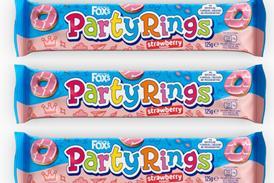



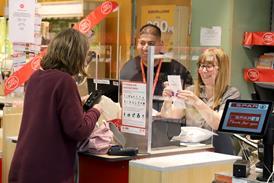

![WG-4003[58]](https://d2dyh47stel7w4.cloudfront.net/Pictures/274x183/4/5/1/353451_wg400358_6083.jpg)




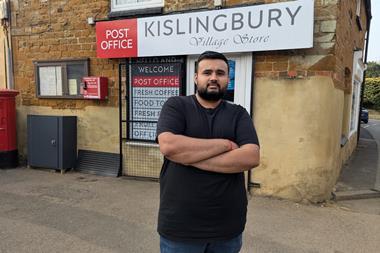
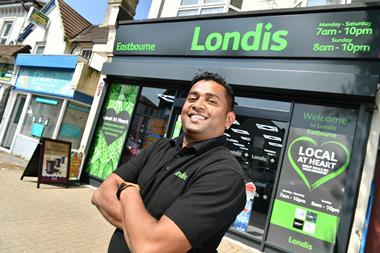
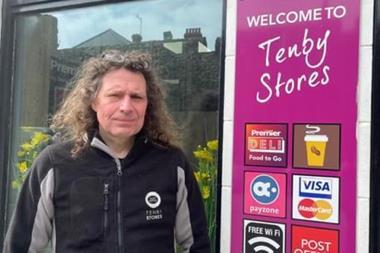
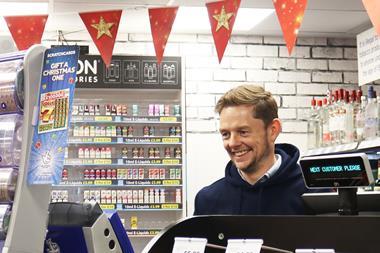
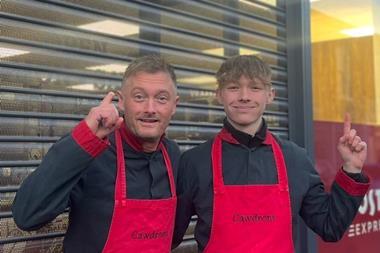
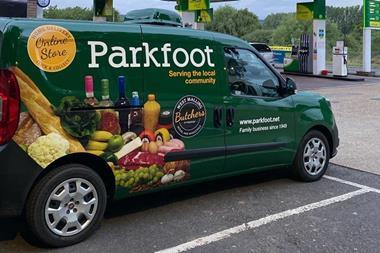



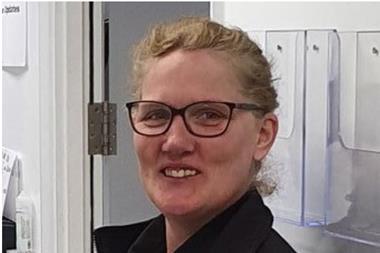
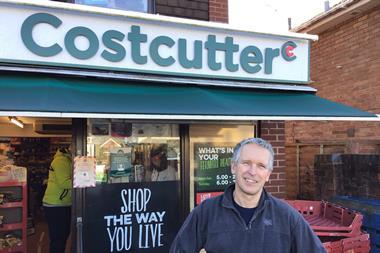
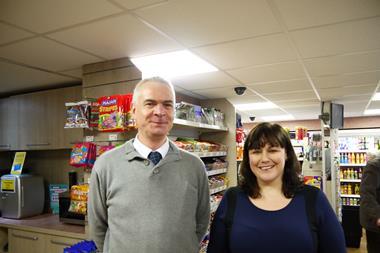
No comments yet